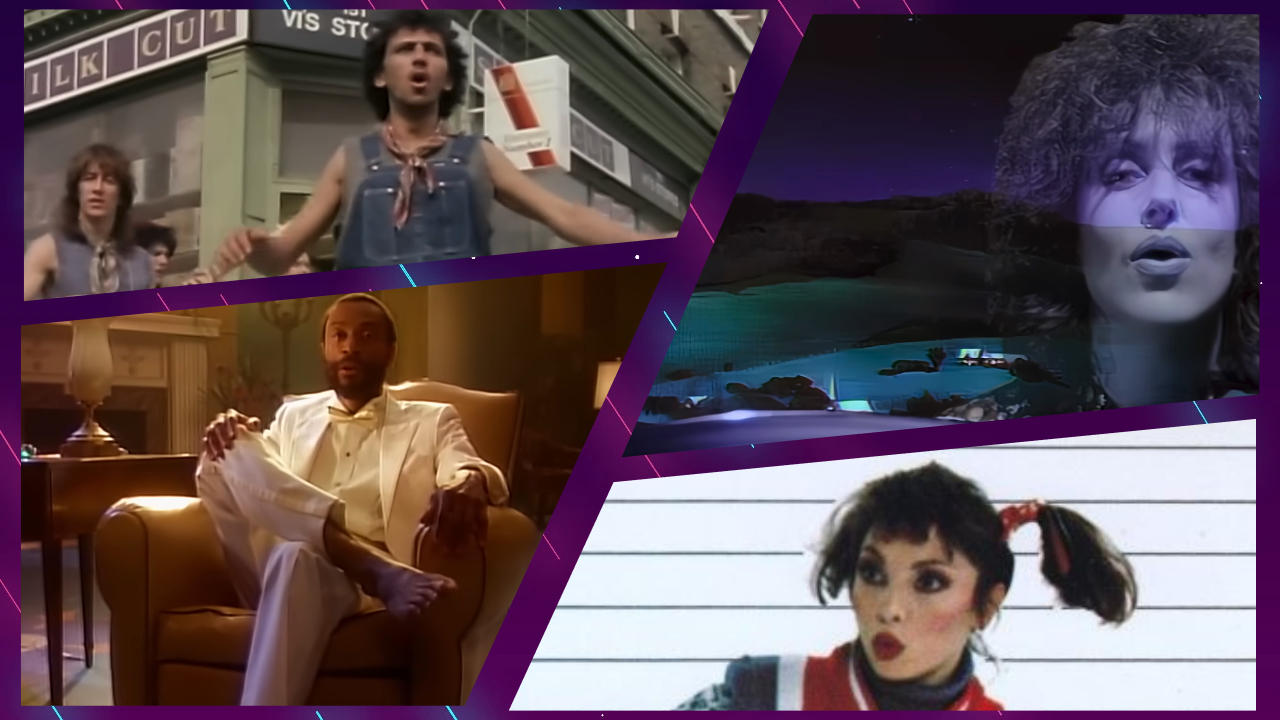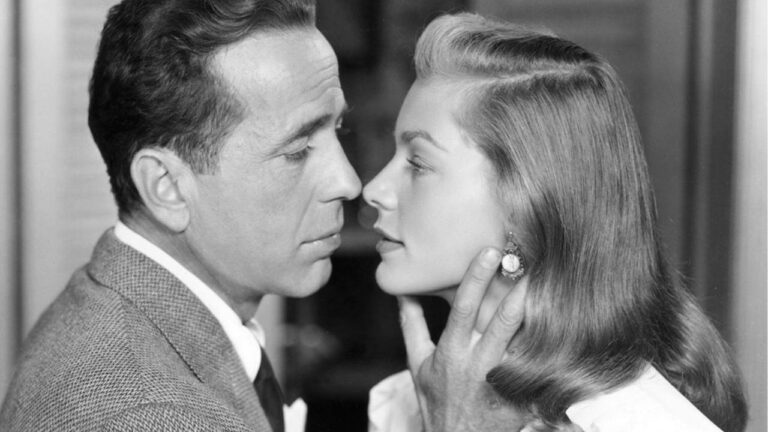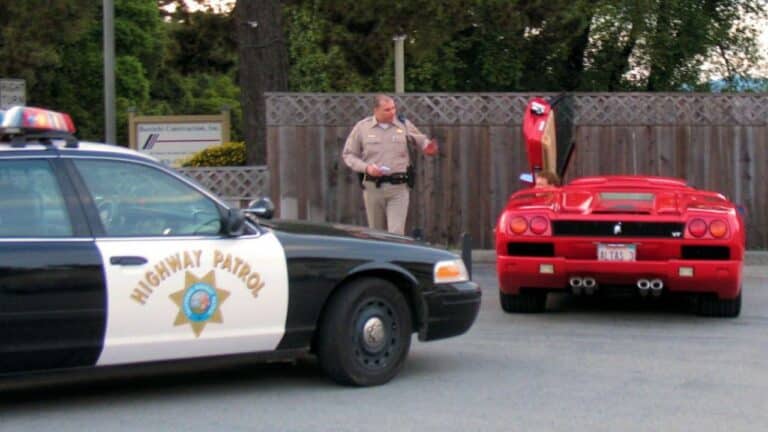15 Totally Irritating 1980s Hit Songs

When MTV launched on August 1, 1981, it changed the course of music forever. Suddenly, a performer’s look in a music video became as important and sometimes more influential than the songs themselves. Artists such as Michael Jackson, Madonna, Cyndi Lauper, Prince, and Duran Duran embraced the new medium and defined the soundtrack of the 1980s.
On the downside, this colorful explosion of new sights and sounds produced a record number of one-hit wonders and other artists who somehow snuck irritating, often repetitive hits onto the charts.
Whether their success is due to excellent timing or sheer luck, the following songs represent some of the most annoying hits of the Reagan era.
“We Built This City” by Starship

Starship’s number-one hit “We Built This City” has been called the worst song of all time by Rolling Stone, Blender, GQ, and anyone with ears.
The song has faux-rebellious, anticorporate lyrics but a slick, polished, corporate-rock sound. The fact that Starship member and ’60s counterculture icon Grace Slick contributed vocals to this irritating anthem drives the knife in deeper.
“Centipede” by Rebbie Jackson

Rebbie Jackson is the eldest Jackson child, and her brother, Michael Jackson, wrote her debut single, “Centipede.” Both Michael and the Weather Girls provide backup vocals on the 1984 song that became a top-40 hit on the Billboard Hot 100.
The song boasts an irritating synth-and-drumbeat combo that sounds like a child banging on a keyboard as Rebbie shrieks, “And you’re crawlin’ like a centipede/Centipede!” Someone call an exterminator fast!
“Mickey” by Toni Basil

In the video for “Mickey,” choreographer-singer Toni Basil — in her late 30s at the time of its release in 1981 — appears in a high school cheerleader outfit singing, “Oh, Mickey you’re so fine/You’re so fine you blow my mind/Hey Mickey!”
The radio-friendly new wave song became a number-one hit in the United States, but the overplayed song’s repetitive cheer wears on listeners’ nerves.
“Rock Me Amadeus” by Falco

“Rock Me Amadeus” by Austrian artist Falco is his only number-one hit in both the United States and the United Kingdom. The song about composer Wolfgang Amadeus Mozart features a stomping beat and a female backup singer screeching “Ooh, rock me Amadeus!” at uncomfortably regular intervals.
We’re not saying Mozart rolled over in his grave because of this song…but that’s pretty much exactly what we’re saying.
“Come on Eileen” by Dexys Midnight Runners

If someone made a list of songs from the 1980s that nobody ever needs to hear again in their life, “Come On Eileen” by Dexys Midnight Runners would hover near the top.
The hit song, purportedly about Catholic repression and not an actual woman named Eileen, became Britain’s top single of 1982.
Whenever you go to a club playing 1980s hits, the DJ will bust out this tired single, probably because the title has a dirty double meaning that tickles intoxicated dancers with a juvenile sense of humor.
“Don’t Worry, Be Happy” by Bobby McFerrin

The 1988 megahit “Don’t Worry, Be Happy” became the first a cappella song to top the Billboard Hot 100 song and stayed there for two weeks.
For a feel-good song with gentle humming and a friendly message, “Don’t Worry, Be Happy” sure does evoke a lot of anger. Decades later, publications such as Blender and the Village Voice listed the Grammy-winning song on their respective worst-song lists.
“Pass the Dutchie” by Musical Youth

As you might have surmised from the title, the 1982 song “Pass the Dutchie” by British-Jamaican band Musical Youth is about smoking.
Although it’s impressive that a song about marijuana cracked the top 10 on the Billboard Hot 100 chart during the “Just Say No” era, the reggae song has annoying background vocalists chirping, “Give me the music, make me jump and prance” during the chorus, which is a buzzkill.
“Party All the Time” by Eddie Murphy

And the award for the most monotonous hit song of the 1980s goes to Beverly Hills Cop star Eddie Murphy for his 1985 number-two hit “Party All the Time.”
Murphy sings about his “girl” who wants to “party all the time.” She wants to party all the time so much that “party all the time” is pretty much all Murphy sings in the repetitive dance ditty — over and over and over.
“The Final Countdown” by Europe

Members of the Swedish hair band Europe questioned the use of a signature keyboard riff in “The Final Countdown” for deviating from guitar-rock expectations, but they should have questioned the entire cheesy arena anthem.
Nearly 40 years after “The Final Countdown” topped the charts in 25 countries, the question remains: the final countdown to what? Is the countdown still happening? Blender included “The Final Countdown” on its list of the “Most Awesomely Bad Songs… Ever.”
“Walking on Sunshine” by Katrina and the Waves

The aggressively upbeat lyrics and music (horns!) of this 1985 hit by Katrina and the Waves hits a little too extra for those not currently ingesting antidepressants.
The song became the first top-40 hit for the British band fronted by Katrina Leskanich, who reportedly described the song as “not really us.” Even the band’s own bassist, Vince de la Cruz, described the optimistic song as “irritating.”
“Wake Me Up Before You Go-Go” by Wham!

Wham! singer George Michael said that the up-tempo hit “Wake Me Up Before You Go-Go” was intended to capture the spirit of energetic ’50s and ’60s hits.
The song became the duo’s first number-one hit in both the U.S. and U.K., but the pervasive horns blaring throughout the pop song are…a lot.
“Pac-Man Fever” by Buckner & Garcia

The novelty song “Pac-Man Fever” cashed in on the world’s enthusiasm for the Pac-Man arcade game.
The song by Buckner & Garcia featuring sound effects from the video game somehow cracked the top 10 of the Billboard Hot 100 chart. The duo’s follow-up single, “Do the Donkey Kong” about the arcade game Donkey Kong, just missed charting on the Hot 100.
“She Blinded Me With Science” by Thomas Dolby

English musician Thomas Dolby scored his biggest hit with the quirky song “She Blinded Me With Science.”
Although nerds of a certain age appreciate the song with a herky-jerky beat punctuated by Dolby blurting “She blinded me with science” at regular intervals, the ditty is anything but “poetry in motion” for the rest of us.
“Footloose” by Kenny Loggins

Kenny Loggins’ “Footloose” served as the theme song for the 1984 film of the same name starring Kevin Bacon. Although the upbeat song topped the Billboard Hot 100 chart for three weeks, you’d be hard-pressed to find anyone who can recite the garbled chorus.
The Internet can help: “So now I gotta cut loose/Footloose, kick off the Sunday shoes/Please, Louise, pull me off of my knees/Jack, get back, come on before we crack/Lose your blues, everybody cut footloose.”
“Sussudio” by Phil Collins

Phil Collins produced a handful of overplayed pop songs in the 1980s, but none more excruciating than “Sussudio.”
Collins sounds like he’s having a seizure as he keeps singing the song’s nonsensical title over and over. The pseudoword song nevertheless became a number-one hit in the United States in 1985.





